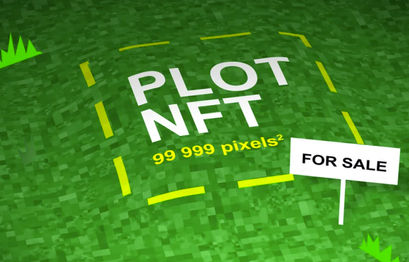- House prices see a 9.6% (£24,000) increase over the past year
- Under-35s worst hit by housing unaffordability and unemployment
- Combined Metaverse land sales grew by 1000% in the last five months
Prices are rising— inflation is leaving its mark on the economy and the oil and gas energy sector is facing a crisis unlike anything seen before. Following the release of the latest House Price Index, it is clear that housing prices are going to follow suit. Rising housing prices present a specific challenge for the under 35s, a group likely trying to enter the housing market for the first time. Specifically, it's this group who are also bearing the brunt of the current covid-era unemployment levels, with hospitality and retail sectors hit hardest.
However, aside from the economic challenge this demographic faces there seems to be one novel investment area that is thriving and could present an alternative: digital real estate in the Metaverse. Is it hype or a valid alternative to those priced out of the current housing market?
If you want to know more about the metaverse, we’ve put together a guide explaining what a metaverse is.
UK Housing Unaffordability
The Office of National Statistics (ONS) released its latest house price index today and it appears that the cost of buying a home is going to increase. The latest findings have suggested that the average home in the UK is now valued at around £240,000; a 9.6% (£24,000) increase from January 2021. When this is paired with the latest affordability data it seems the current economic climate to buy a home is financially challenging for any demographic hit by a combination of high unemployment and rising inflation.
There is one demographic that may struggle more than most: the under 35s. Under 35s make up a large proportion of those employed by the hospitality and retail sectors — undoubtedly some of the hardest-hit areas during the pandemic.
While employment seems to be recovering slowly there will be large pools of people on a reduced income, with higher expenses and now an inflated housing market.
So, what is the future for those who are now priced out of the housing market?
The Metaverse and Digital Real Estate
The Metaverse is a sector with a lot of traction behind it and equally large amounts of capital flowing through its ecosystem. Digital real estate purchased within the Metaverse is the latest asset available to prospective investors.
Digital real estate is an investment product that also has digital utility within the Metaverse. The Metaverse is a place, or even a state, that represents physical activities being done digitally.
Forbes reported that in 2021 the average cost of digital land was around $5,300, paling in comparison to the latest UK real estate average cost of £240,000. While digital real estate doesn’t offer the same kind of utility as physical property, it is still possible to use it as an investment tool— like traditional real estate would but at a much lower cost when looking at today’s house prices. Early adopters believe buying virtual property at the moment is akin to having bought real estate in London 80 years ago. Virtual land can appreciate and be even leased for rental income.
Market Performance
Over the past five months combined land sales in the Metaverse have risen by an astonishing 1000%. Revenue noticeably dropped in December but then rose to $81,000,000 in January. Reports estimate this sector will double in 2022. There are two clear reasons for these market trends.
Why is Virtual Land Booming?
Utility is expanding— people are coming up with new ways to use digital land to make money. Principally, it is just an investment, but now it's possible to use digital assets to conduct other activities like marketing or social events.
Meta is also influencing market trends of digital real estate. Mark Zuckerberg announced in late 2021 that Facebook was rebranding and this is significant for digital real estate. It’s an indicator that the biggest companies in the world are backing or will back the Metaverse trend. Markets reacted with a $180,000,000 spike in digital land revenue.
Digital real estate is also more accessible. The asset itself is in the form of an NFT so all that's needed is an interface to buy the asset itself, like Decentraland or Sandbox, and a wallet to store it; it's a process that can be completed in under an hour.
The Future
It seems with such momentum behind it, and a price point 240 times lower than traditional real estate, digital real estate could offer a legitimate alternative investment for those under 35s struggling to qualify for a mortgage.
With over £285,000,000 being put on this new asset class just in the last two months of 2021 digital investments may present a real alternative to an ever-appreciating real estate sector.
Related Content
If you still haven't purchased your desired crypto, check out these guides:








